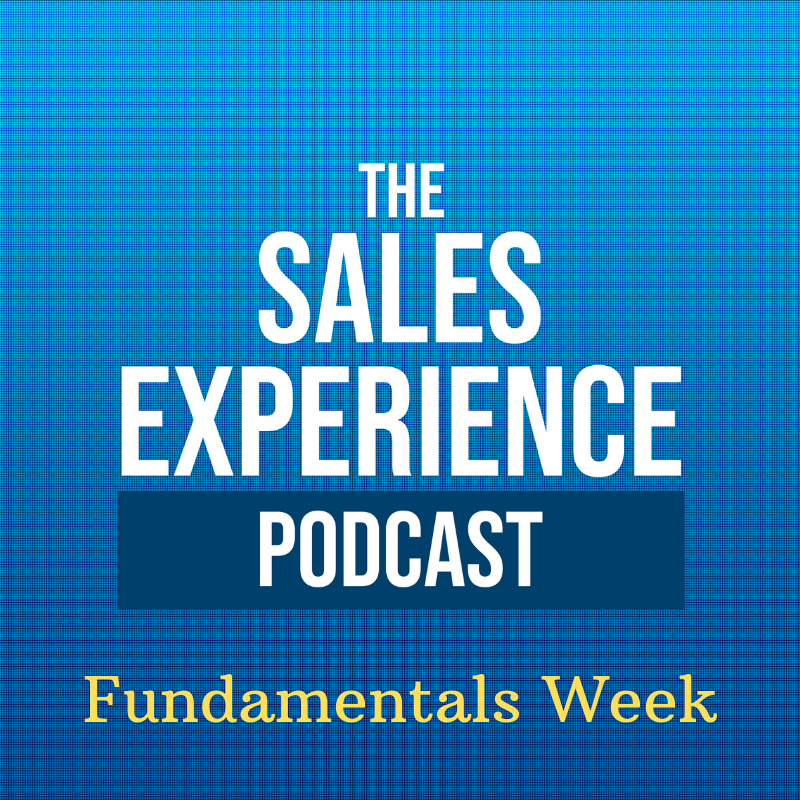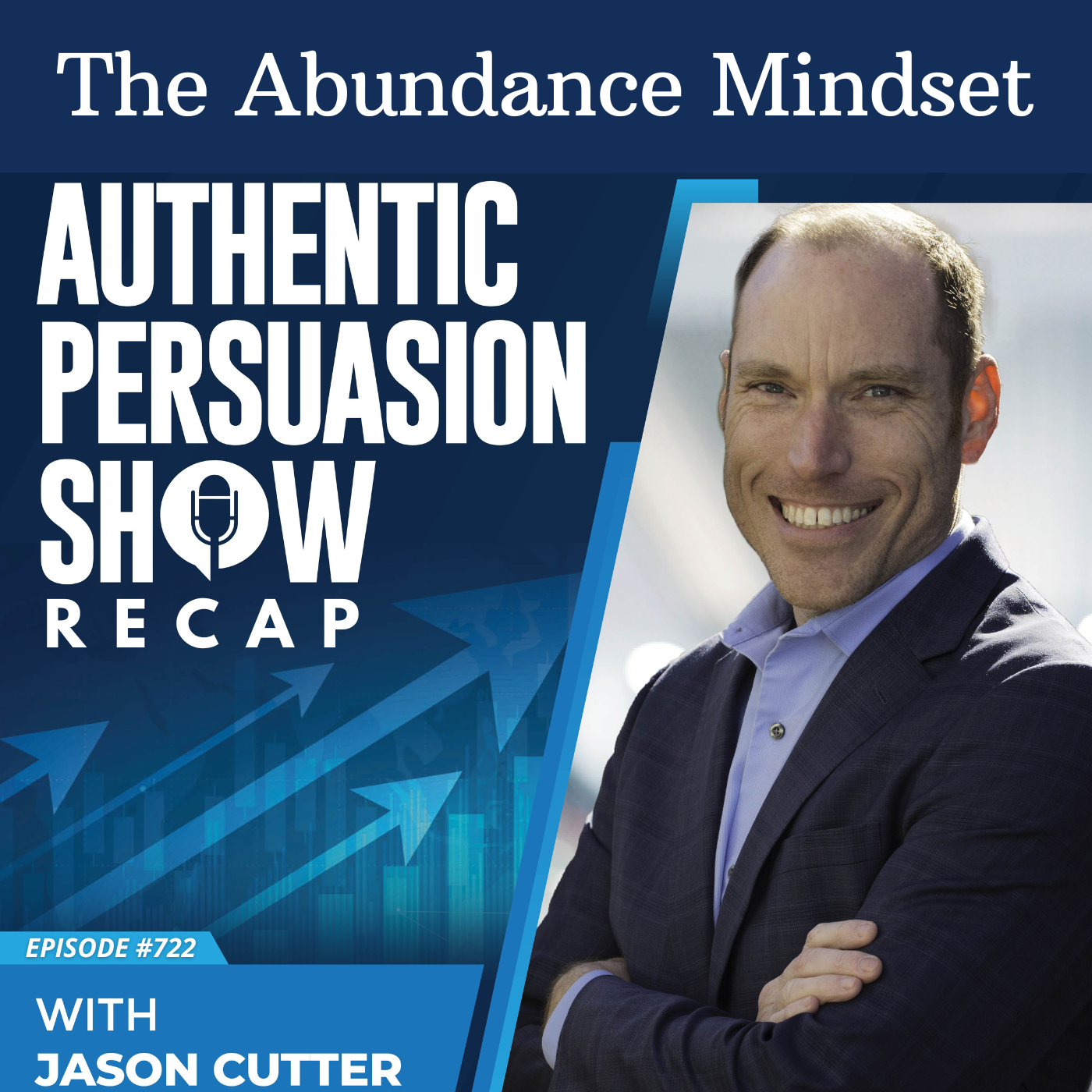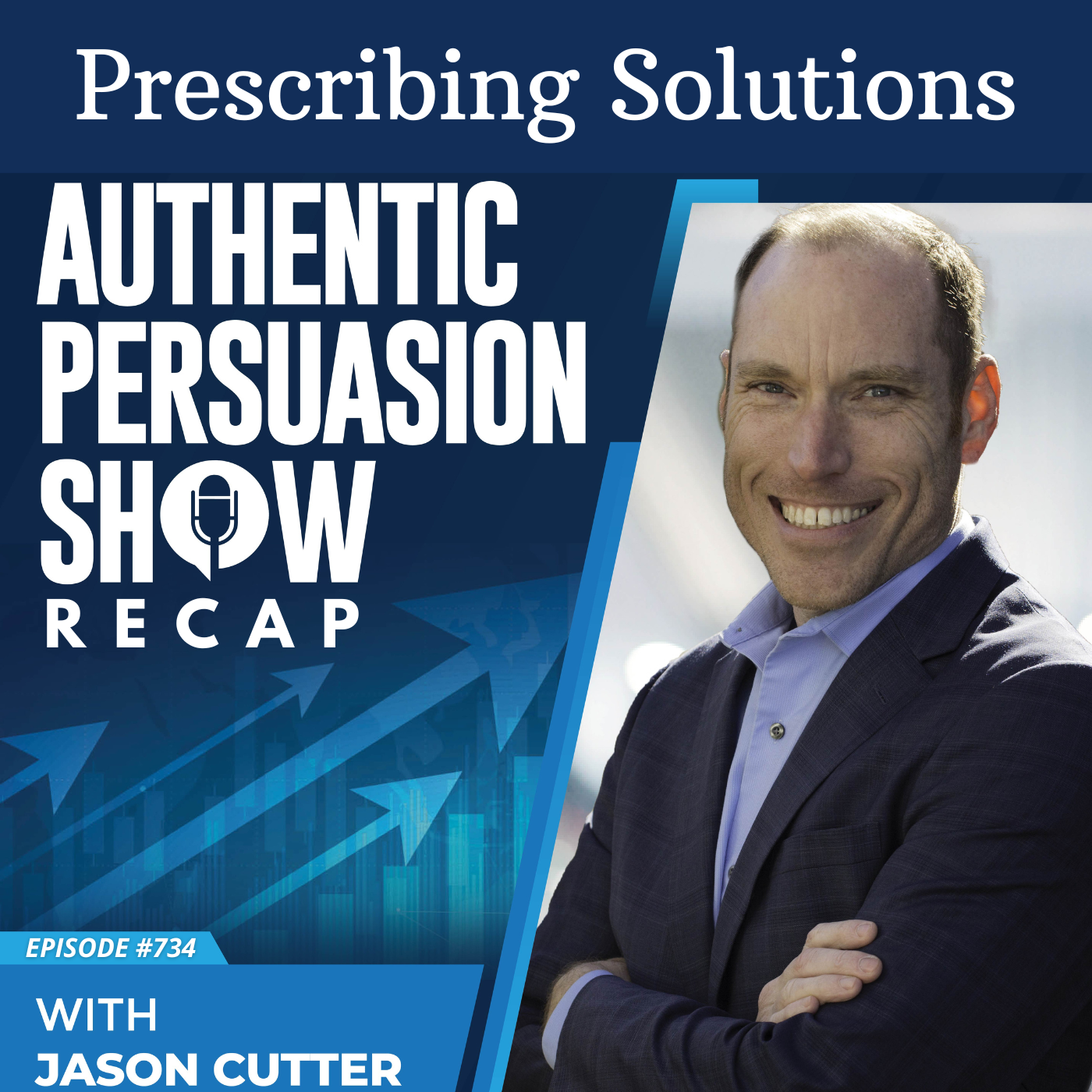Episode Transcript
Jason: Welcome back to the sales experience podcast. If you haven't make sure to listen to the first three parts. Today's episode is part for the final segment of my conversation with Peter. We're going to keep rolling. We're going to talk about his early job experiences and funny enough. He's always been in sales, which is different than myself.
And I just love the fact that he also realizes that everything in life is sales. And so that's just fun. But here you go. Here's the final segment of my conversation with Peter.
Peter: I find the worst salespeople are the ones that are like, get all of it. Oh, I got a hot lead. And then the whole day, their mindset's in the hot lead.
And it's okay, so there's one lead. Let's go get 50 more of them. And it's just a that's what I do. That's a thing, right? Just numbers is very sort of nonchalance to it.
Jason: Where does that balance though? Because I know exactly what you're talking about with celebrating the small wins, celebrating the victories, being excited.
About those little milestones, little or big, and the over under with the emotional, like I got a hot lead, like this is, I'm going to be rich. And it's then all their eggs are in that one emotional basket that will probably get stepped on because it takes more than one lead. Yeah.
Peter: And listen, celebrating wins is awesome.
That's great. And I'm a big fan of rituals. Like we have the bell that rings every time someone makes a sale or an email goes around. I'm a big fan of that. Again, great for the ego, right? To be honest about what it takes to achieve outcomes is to be honest about ego. You and I have said that word bunch today.
And we as leaders need to take steps to make sure that people that work for us have praise, warranted praise, not undue praise. And especially, I really try, I fail sometimes, as everyone does, really try every time one of my employees, I'm really on them for something, I will, not always, most often I try to make sure I say to them, Hey, I recognize that you went above and beyond here.
Really nice job. Just want you to let you know that. What's interesting to me is. with all the experiences I've had and in clients and my wife being in the workforce and everything. Oftentimes it doesn't take more than that. Just like a simple acknowledgement. Hey, good job. Really all it takes most times.
So I see companies go the other way too. They're like all nuts every time and it gets exhausting, right? It's Oh no, here comes the champagne boat again. And again, we get it. So yeah, it's interesting.
Jason: Yeah. If you go too far to the other extreme, it gets desensitized to it where it's just okay, like now it doesn't mean anything because it's always a celebration.
And like I've said, if you do spiffs and contests, the problem is if you do them regularly, you have to keep raising the bar. It's 50, then it's 100, then it's a TV, then it's a cruise, then it's a trip to the moon. You have to keep raising the bar. If it's extrinsically trying to motivate the team to win instead of intrinsic, but I think to the point you made a few minutes ago, I think there's always a balance where managers, leaders can go in a negative direction, which is someone says, Hey, I just had a good lead and they say, that's great, except where are the other 50 you were supposed to have today.
And they beat someone down. Is that my dad?
Peter: Where's the A
Jason: where's the A or where's the six other A's? Because that's great, but where's all the other ones? And I think it's, you gotta celebrate the win, and then encourage hey, that's great. Keep on going. You're on a roll and keep it instead of that scarcity.
You're supposed to do 10 widgets today. You made nine and no porridge for you tonight, right? Yeah, I agree. What's the most non sales job that you've ever had?
Peter: That's a tough one because I've owned my own company since 22. And when you're a company owner, you're in sales, whether you want it or not.
Before that, I sold figure skates and figure skating equipment. I really It's always been in it. Other things I've done, like after a professional actor, guess what? Acting is sales. Getting into school, that's sales. Everything's sales. I love it. Being married. That's a lot of sales.
Yeah. So that's my point earlier. Like it is all sales. I really admire people who grew up with a door to door sales experience. I think everyone, I did not have that experience and I wish I had, I think it would have been really good for me to have that. Before I started my company and I just hired someone the other day, a new speaker agency.
And I was asking the owner about her experiences again. I used door to door sales and I was like, say no more. You're hired because if you have that experience and you're hardened to it and you understand process like. That is such a huge. Have you ever done something like that, Jason?
Jason: I never have, but I've managed people who have come from that and hired people out of that.
And they are such hard workers. They're so thankful to not do it. And they all know their numbers. They know that if I knock on 200 doors, I'm going to get five people to answer. I'm going to sell two of them. Now the question is how can I knock on 200 doors a day? And it's like, how do I knock on more doors faster?
Because that's the formula. That's it. Which is amazing. What is your definition of success?
Peter: Freedom. Being able to do whatever I want. Having optionality. That's why I became a business owner. And I tell this to entrepreneurs. I'm like, new entrepreneurs. Oh, I'm going to be an entrepreneur. I see those entrepreneurs on Shark Tank, I'm going to be worth a hundred million dollars.
I'm like slow your roll there, bud. Take it easy. Because most of it's spent in poverty. And self doubt and disillusion and everything. So there's step one. I say to them here's the question. Would you rather be a broke entrepreneur, make your own way in the world, or would you rather have consistent money and have to work for someone else?
I would rather be a broke entrepreneur. I want to make sure that my success is my success, my failure is my failure. I want to own it. And to me, ownership over time, over projects, having a conversation with Mr. Jason Cutter that to me is success.
Jason: Do you, total sidebar, do you consider yourself just completely unemployable?
Peter: Yeah. Oh, I'd be a total pain in the ass to work for someone else because I'd question everything, especially now. Honesty. I'd be like that. Listen, I hope you don't mind me saying so, but I think that's a dishonest result and here's why. And I hope I haven't offended you. Yeah.
Jason: Nobody wants that. Most business owners don't, especially because they're going to see it as a threat to their ego and to their position.
And they're supposed to be the one that knows everything and in charge of everything. And there's a limit to how much you can question. Yeah
Peter: but interestingly, the leaders in my book show from Warren Buffett to the CEOs of Domino's and Quicken Loans and the Ritz Carlton and, on and on.
They all share one common trait, which is they love these three little words. It's not, I love you. It's, I don't know. They just literally spend all their time sitting back and being like, I have no idea, right? What do you think? Oh, that sounds reasonable. Let's try that. Not the ego driven leader. I use that word loosely.
Authority, we'll say, because it's not a leader. Authority. That is, I should know everything and I'm the, that's not the role of an executive today, where we all have the same amount of information. We all have the same Google password here. It's really changed. And that's what I hope people understand. One of the big messages in my book.
Jason: And I think that's a valid point, which I love and a great reminder. People don't need information anymore. There's some people who need information. Some people need knowledge or reminders about things, but we all have it. Especially your prospective customers don't need you for knowledge.
They don't need you for information. They need you for wisdom, which is the, I've got knowledge. I know more about you and your product or service than you probably do. Mr. Salesperson. So tell me what the hell it's going to do for me or how you can help me. I need wisdom, not knowledge. So that's great.
Last question. Curveball. I didn't tell you this one in advance. Journey or the destination.
Peter: I'm ashamed to admit, but I got to be honest. I'm destination focused. I'm not proud of that. Why not? I don't know, because I find myself rushing through parts of the journey, and I have been trying to be better at reminding myself to slow down, to appreciate a friend of mine, who I spent time with in Israel, has a tattoo that says in Hebrew, this too shall pass, and it's about, this too shall pass when it's bad, but this too shall pass when it's good, too, and I really try to remind myself to slow down, but I don't do a good job Destination.
Jason: And I said yes, because Most people are going to say journey. Most people say it because they feel like that's the right answer because that's what you're supposed to say. And I love the fact that you said destination. I agree. I think there's always a balance, but the journey is great. But if you don't have a destination, you're going after the journey is just a leaf in the wind.
So you you could debate, you need both or you need the destination to have a journey.
Peter: I'll get in trouble for saying this, but you're absolutely right. And people who cling to the, it's about the journey, not the destination. It sounds like something that people who don't achieve their goals say, just like it's not all about the money is something that people who don't have money makes them feel better.
I know it's a controversial thing to say, but with some of these things, some of these idiomatic expressions that we have can actually, I think, be harmful in the end. I feel like the people who push past those things sometimes figure out on the other side that's weird, why does everybody say that?
Because it's actually not true. When I started making money in my business, Jason, tell you what, I felt pretty darn good about it.
Jason: Yeah, and I think there's some truth also to the journey and the process is important because once you get to the destination, you also learn that's not enough, depending on what that holds for you emotionally, like how important the top of that mountain peak is, because then you realize there's other mountain peaks and that's cool, but it's short lived and so it's the journey to the destination to the next journey and the process of doing it.
The more you can love the process, like Gary V says a lot like that helps, but you also have to have something you're going for. Yeah.
Peter: The destination is not guaranteed to people tell you that about the pandemic, right? And if it's not the pandemic, it's a wildfire and it's not that it's like all these factors external and internal are coming for us.
So to your point, destination is not always guaranteed and not always within our control. Appreciating the journey is
Jason: awesome. Peter, obviously people can get your book honest to greatness everywhere and anywhere. If you're watching the video, there it is again, which I love. PeterKosodoy. com slash go. Is that the best?
Peter: Yeah, that's great. Or honesttogreatness. com will dump you into my website as well.
Jason: That's easier to remember. Perfect. And then where are you most active online?
Peter: I'm like the worst millennial ever, Jason. I'm like begrudgingly on all the social media, but probably Instagram.
Jason: Instagram. Okay. And don't be ashamed of that.
That's okay. It's fine. So Peter, thanks for being on the show. I love it. I appreciate the honesty and everything you're doing to shift this. So thank you for this.
Peter: Thank you. Thanks for being honest.
Jason: All right. That's it for my conversation with Peter. Hopefully you enjoyed it. Hopefully you caught all four parts.
Coming up soon, I'm going to do some format changes to the podcast. I got a bunch of feedback from people regarding what they'd like to see different with the show. So coming up soon, I'm going to have some changes. Stay tuned. Make sure to subscribe so you can catch the episodes now every day. And then with whatever the new format is going to be, it's going to be a surprise.
I'm not going to tell you yet. Make sure you're tuned and then I will catch you in the next episode of the sales experience podcast. That's it for another episode of the sales experience podcast. Thank you so much for listening. If you find yourself on iTunes, can you leave the show a rating and a review?
It helps other salespeople and sales leaders find the show and please subscribe to the show and share episodes you find valuable with anyone you know in sales. Help me on my mission of changing the way. Sales is done. And if you're ready to work together, go to Jason cutter. com again. That's Jason cutter.
com to find out how I can help you or your company create scalable sales success. I will see you on the next sales experience podcast episode and keep in mind that everything in life is sales and people remember the experience you gave them.
![[E299] Honest to Greatness, with Peter Kozodoy (Part 4)](https://episodes.castos.com/salesexperiencepodcast/images/Peter-Kozodoy-Cover-Image.png)


